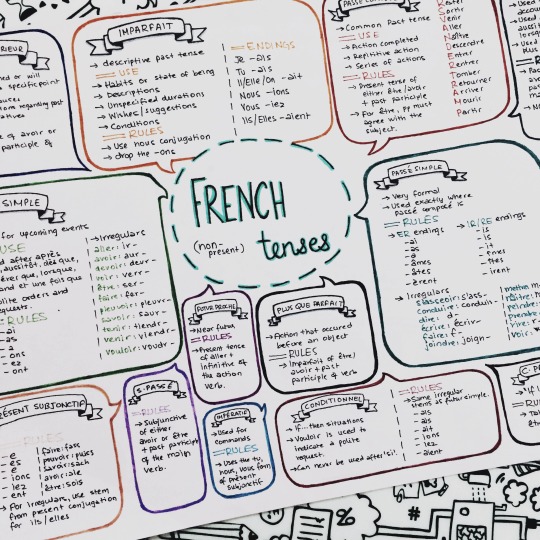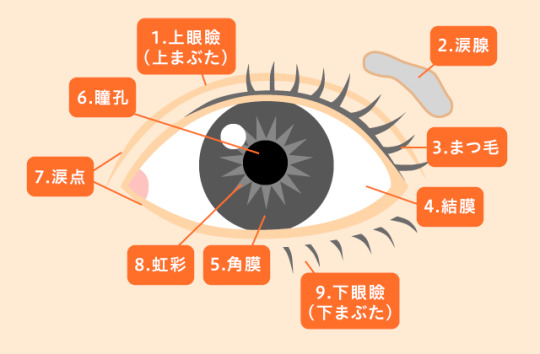Text
i just made a twitter account add me pls, im lonely
76 notes
·
View notes
Text
!!
Im moving to a new blog bc this one is distracting me too much lmao. I’m still gonna be active on this, as a reblogging n posting random study stuff, but will actively studyblr on @demesnestudies if anyone wants to hmu.
i follow back
7 notes
·
View notes
Text
If you’re learning English, Spanish, Italian, French, German, Dutch, Catalan, Portuguese, Turkish, or Japanese...
Discover songs in that language from this website:
http://lyricstraining.com/
lots of songs with different genres in your target language to discover and LEARN!
1K notes
·
View notes
Text
How I’m going to choose my next target language:

3K notes
·
View notes
Photo

31.1.16 // 10:38 pm
finished my mind map for french tenses! well technically not just tenses but all the kinds of conjugations im going to need to have to remember
9K notes
·
View notes
Text
someone: can you speak ___
me: well technically i can… but that doesn’t mean i should
1K notes
·
View notes
Text
Never make fun of someone’s proficiency in a language. If it’s a French speaker with a heavy accent but otherwise flawless English, or an English speaker who can barely string together a sentence in Mandarin, everyone who is learning a second language should be respected.
2K notes
·
View notes
Text
Before you laugh and make fun of someones accent or mistakes when they speak english please take a moment to realize that you can actually learn alot about their language by their mistakes for example
When I was I denmark I noticed alot of danes say “ I will learn you ” instead of saying I will teach you because teach and learn is the same thing in danish
Also arabs when they speak english they often say “ beeebol ” instead of “ people ” or “ bebzi ” instead of “ Pepsi ” because the letter P doesn’t exist in the arabic alphabet
Theres always something to learn when you stop being an ignorant piece of shit
160K notes
·
View notes
Photo

1. 上眼瞼 「じょうがんけん」or 上まぶた 「うわまぶた」Upper eyelid
2. 涙腺 「るいせん」 Lacrimal gland
3. まつ毛 「まつげ」Eyelashes
4. 結膜 「けつまく」Conjunctiva
5. 角膜 「かくまく」Cornea
6. 瞳孔 「どうこう」 Pupil
7. 涙点 「るいてん」 Lacrimal point
8. 虹彩 「こうさい」Iris
9. 下眼瞼「かがんけん」or 下まぶた 「したまぶた」Lower Eyelid
435 notes
·
View notes
Text
vocabulary lesson: DNA by bts

첫눈에 = at first sight
널 알아보게 됐어 = I recognized you
서롤 불러왔던 = calling out to eachother
것처럼 = as if / like…
혈관 = vein / blood vessen
속 = inside
말해줘 = tell me / telling me
내가 찾아 헤매던 너라는 걸 = you’re the one I’ve been looking for
우리 만남은 = our meeting, our encounter
수학 공식 = mathematical question, math equation
종교 = religion
율법 = commandments (religious)
우주 = universe
섭리 = principle, logic
운명 = destiny, fate
Keep reading
3K notes
·
View notes
Photo

17 Sep 2017 ||
credit to @studywithlexa for the idea!
If you’re going to Germany on holidays, maybe just for a few days, you probably don’t need to speak fluent German - but a few phrases might come in handy! Here are some that I thought might be useful. I indicated verb forms and irregular plurals.
Directions:
Entschuldigung, können Sie mir helfen? - Excuse me, could you help me?
Ich möchte nach (Stadt, Bezirk) W/in die X Straße/zum Hotel Y, Bahnhof/Flughafen Z. - I want to go to city/district W, street X, hotel Y, train station/airport Z.
Wie komme ich dahin? - How do I get there?
Geradeaus - straight down
(nach) rechts/links (abbiegen (bog ab, ist abgebogen)) - to turn right/left
an der Ecke von etw. (dat.) - on the corner of sth, often just “Straße X Ecke Straße Y”
gegenüber von X (dat.) - opposite of X
auf der ersten/zweiten/dritten Etage - on the first/second/third floor
die Rolltreppe - escalator
der Fahrstuhl (pl. die Fahrstühle) - elevator
nehmen (nahm, genommen, + Akk.) - to take sth.
e.g. den Bus nehmen, die Bahn nehmen, die Rolltreppe nehmen, den Fahrstuhl nehmen - to take the bus/escalator/elevator etc.
Ordering something:
Ich würde gern bestellen. - I’d like to order.
Ein Glas/eine Flasche/eine Maß X bitte. - One glass/a bottle/a Maß (one litre, only for beer), please.
If you order something that automatically comes in a glass, you can just say “Ein/e/n X (Akk.), bitte” - einen Kaffee, eine Apfelschorle, ein Wasser.
Die Rechnung, bitte/Könnte ich bitte die Rechnung bekommen?/Ich würde gern zahlen. - I’d like to pay.
Stimmt so. - Keep the change. This is for tipping.
Geben Sie mir bitte auf X € raus? - Could you give me the change for X Euro, please? Alternatively: Machen Sie X€ draus, bitte /Make that X€. Also for tipping. If your total is 13 and you give them a 20 bill, you could say „Geben Sie mir bitte auf 15 raus”. Then you’d only get 5 Euros back and the 2 euros you’re missing is the tip.
der Bon (pronounced the french way)/der Kassenzettel - receipt (supermarket and shops)
die Rechnung - receipt (gastronomy, though also sometimes in shops etc)
das Pfand - when you return empty plastic bottles or glass beer bottles to the store, you get money back. 25 cents for plastic, 8 for glass.
Public transport:
Ein Ticket (nach X (dat.)) bitte. - One ticket to X, please.
die Tageskarte - day ticket
ermäßigt - reduced in price due to age/student discount/disability etc
der Regeltarif - normal price
die Kurzstrecke - short distance ticket, usually only 3 to 5 stops (not available everywhere!)
(ein Ticket (Akk.)) entwerten (entwertete, hat entwertet) - to validate a ticket
die Umleitung - diversion route
die Baustelle - roadworks
der Stau (pl. die Staus)- traffic jam
eine Rettungsgasse bilden - to clear a path for rescue vehicles
der Schienenersatzverkehr - replacement buses for trains that aren’t in service (one of my favourite german words ever)
die Abfahrt - departure
die Ankunft (pl. die Ankünfte) - arrival
ausfallen (fiel aus, ist ausgefallen) - to be cancelled (for trains and buses etc, also for school lessons)
das Taxi - taxi
der Bus - bus
die Straßenbahn/Tram - overground train
die U-Bahn - underground train/metro
die Ausfahrt - exit (autobahn)
die Umweltzone - low-emission zone (you need a certain sticker on your car to drive in these areas.)
die Haltestelle - bus stop
der Fahrplan (pl. die Fahrpläne) - schedule/timetable (for buses and trains)
die Fußgängerzone - pedestrian area
If you want me to make more of these please tell me! :)
733 notes
·
View notes
Text
spooky japanese vocab 🎃

🎃 ハロウィーン ― halloween
🎃 南瓜 「かぼちゃ」 ― pumpkin
🎃 骸骨 「がいこつ」 ― skeleton
🎃 蝙蝠 「こうもり」 ― bat
🎃 蜘 「くも」 ― spider
🎃 黒猫 「くろねこ」 ― black cat
🎃 満月 「まんげつ」 ― full moon
🎃 ヴァンパイア ― vampire
🎃 吸血鬼 「きゅうけつき」 ― original japanese word for vampire
🎃 血を吸う 「ちをすう」― to suck blood
🎃 幽霊 「ゆうれい」 ― ghost
🎃 狼男 「おおかみおとき」 ― werewolf
🎃 透明人間 「とうめいにんげん」 ― invisible man
🎃 ミイラ ― mummy
🎃 フランケンシュタインの怪物 「フランケンシュタインのかいぶつ」 ― frankenstein’s monster
🎃 魔女 「まじょ」 ― witch
🎃 魔法使い 「まほうつかい」 ― wizard/sorcerer
🎃 魔法の呪文 「まほうのじゅもん」― a magic spell
🎃 魔法の呪文をかける 「まほうのじゅもんをかける」 ー to cast a magic spell
🎃 化け物 「ばけもの」 ― monster
🎃 鬼 「おに」 ― demon (traditional japanese)
🎃 悪魔 「あくま」 ― devil/demon
🎃 お化け屋敷 「おばけやしき」 ― haunted house
🎃 お化け話 「おばけばなし」 ― ghost stories
🎃 怖い 「こわい」 ― scary
🎃 恐ろしい 「おそろしい」 ― horrible
🎃 気味悪い 「きみわるい」 ― creepy/unpleasant
🎃 グロ ― grotesque
🎃 呪い 「のろい」― a curse
🎃 呪う 「のろう」― to curse s/o or s/t
ハッピーハロウィーン!💀 🎃 👻
3K notes
·
View notes
Text
some language textbook: learn those simple phrases to be able to converse with native speakers of your target language :)
me: i refuse to open my mouth unless i master the subjunctive and recognise all regional accents
19K notes
·
View notes
Text
In Swedish; the number 17 is a (child friendly) curse word
11K notes
·
View notes
Text
Tips to learn a new language
The 75 most common words make up 40% of occurrences
The 200 most common words make up 50% of occurrences
The 524 most common words make up 60% of occurrences
The 1257 most common words make up 70% of occurrences
The 2925 most common words make up 80% of occurrences
The 7444 most common words make up 90% of occurrences
The 13374 most common words make up 95% of occurrences
The 25508 most common words make up 99% of occurrences
(Source: 5 Steps to Speak a New Language by Hung Quang Pham)
This article has an excellent summary on how to rapidly learn a new language within 90 days.
We can begin with studying the first 600 words. Of course chucking is an effective way to memorize words readily. Here’s a list to translate into the language you desire to learn that Derek Roger suggested! :)
EXPRESSIONS OF POLITENESS (about 50 expressions)
‘Yes’ and 'no’: yes, no, absolutely, no way, exactly.
Question words: when? where? how? how much? how many? why? what? who? which? whose?
Apologizing: excuse me, sorry to interrupt, well now, I’m afraid so, I’m afraid not.
Meeting and parting: good morning, good afternoon, good evening, hello, goodbye, cheers, see you later, pleased to meet you, nice to have met.
Interjections: please, thank you, don’t mention it, sorry, it’ll be done, I agree, congratulations, thank heavens, nonsense.
NOUNS (about 120 words)
Time: morning, afternoon, evening, night; Sunday, Monday, Tuesday, Wednesday, Thursday, Friday, Saturday; spring, summer, autumn, winter; time, occasion, minute, half-hour, hour, day, week, month, year.
People: family, relative, mother, father, son, daughter, sister, brother, husband, wife; colleague, friend, boyfriend, girlfriend; people, person, human being, man, woman, lady, gentleman, boy, girl, child.
Objects: address, bag, book, car, clothes, key, letter (=to post), light (=lamp), money, name, newspaper, pen, pencil, picture, suitcase, thing, ticket.
Places: place, world, country, town, street, road, school, shop, house, apartment, room, ground; Britain, name of the foreign country, British town-names, foreign town-names.
Abstract: accident, beginning, change, color, damage, fun, half, help, joke, journey, language, English, name of the foreign language, letter (of alphabet), life, love, mistake, news, page, pain, part, question, reason, sort, surprise, way (=method), weather, work.
Other: hand, foot, head, eye, mouth, voice; the left, the right; the top, the bottom, the side; air, water, sun, bread, food, paper, noise.
PREPOSITIONS (about 40 words)
General: of, to, at, for, from, in, on.
Logical: about, according-to, except, like, against, with, without, by, despite, instead of.
Space: into, out of, outside, towards, away from, behind, in front of, beside, next to, between, above, on top of, below, under, underneath, near to, a long way from, through.
Time: after, ago, before, during, since, until.
DETERMINERS (about 80 words)
Articles and numbers: a, the; nos. 0–20; nos. 30–100; nos. 200–1000; last, next, 1st–12th.
Demonstrative: this, that.
Possessive: my, your, his, her, its, our, their.
Quantifiers: all, some, no, any, many, much, more, less, a few, several, whole, a little, a lot of.
Comparators: both, neither, each, every, other, another, same, different, such.
ADJECTIVES (about 80 words)
Color: black, blue, green, red, white, yellow.
Evaluative: bad, good, terrible; important, urgent, necessary; possible, impossible; right, wrong, true.
General: big, little, small, heavy; high, low; hot, cold, warm; easy, difficult; cheap, expensive; clean, dirty; beautiful, funny (=comical), funny (=odd), usual, common (=shared), nice, pretty, wonderful; boring, interesting, dangerous, safe; short, tall, long; new, old; calm, clear, dry; fast, slow; finished, free, full, light (=not dark), open, quiet, ready, strong.
Personal: afraid, alone, angry, certain, cheerful, dead, famous, glad, happy, ill, kind, married, pleased, sorry, stupid, surprised, tired, well, worried, young.
VERBS (about 100 words)
arrive, ask, be, be able to, become, begin, believe, borrow, bring, buy, can, change, check, collect, come, continue, cry, do, drop, eat, fall, feel, find, finish, forget, give, going to, have, have to, hear, help, hold, hope, hurt (oneself), hurt (someone else), keep, know, laugh, learn, leave, lend, let (=allow), lie down, like, listen, live (=be alive), live (=reside), look (at), look for, lose, love, make, may (=permission), may (=possibility), mean, meet, must, need, obtain, open, ought to, pay, play, put, read, remember, say, see, sell, send, should, show, shut, sing, sleep, speak, stand, stay, stop, suggest, take, talk, teach, think, travel, try, understand, use, used to, wait for, walk, want, watch, will, work (=operate), work (=toil), worry, would, write.
PRONOUNS (about 40 words)
Personal: I, you, he, she, it, we, they, one; myself, yourself, himself, herself, itself, ourselves, yourselves, themselves.
Possessive: mine, yours, his, hers, its, ours, theirs.
Demonstrative: this, that.
Universal: everyone, everybody, everything, each, both, all, one, another.
Indefinite: someone, somebody, something, some, a few, a little, more, less; anyone, anybody, anything, any, either, much, many.
Negative: no-one, nobody, nothing, none, neither.
ADVERBS (about 60 words)
Place: here, there, above, over, below, in front, behind, nearby, a long way away, inside, outside, to the right, to the left, somewhere, anywhere, everywhere, nowhere, home, upstairs, downstairs.
Time: now, soon, immediately, quickly, finally, again, once, for a long time, today, generally, sometimes, always, often, before, after, early, late, never, not yet, still, already, then (=at that time), then (=next), yesterday, tomorrow, tonight.
Quantifiers: a little, about (=approximately), almost, at least, completely, very, enough, exactly, just, not, too much, more, less.
Manner: also, especially, gradually, of course, only, otherwise, perhaps, probably, quite, so, then (=therefore), too (=also), unfortunately, very much, well.
CONJUNCTIONS (about 30 words)
Coordinating: and, but, or; as, than, like.
Time & Place: when, while, before, after, since (=time), until; where.
Manner & Logic: how, why, because, since (=because), although, if; what, who, whom, whose, which, that.
240K notes
·
View notes
Text
Tips to learn a new language
The 75 most common words make up 40% of occurrences
The 200 most common words make up 50% of occurrences
The 524 most common words make up 60% of occurrences
The 1257 most common words make up 70% of occurrences
The 2925 most common words make up 80% of occurrences
The 7444 most common words make up 90% of occurrences
The 13374 most common words make up 95% of occurrences
The 25508 most common words make up 99% of occurrences
(Source: 5 Steps to Speak a New Language by Hung Quang Pham)
This article has an excellent summary on how to rapidly learn a new language within 90 days.
We can begin with studying the first 600 words. Of course chucking is an effective way to memorize words readily. Here’s a list to translate into the language you desire to learn that Derek Roger suggested! :)
EXPRESSIONS OF POLITENESS (about 50 expressions)
‘Yes’ and 'no’: yes, no, absolutely, no way, exactly.
Question words: when? where? how? how much? how many? why? what? who? which? whose?
Apologizing: excuse me, sorry to interrupt, well now, I’m afraid so, I’m afraid not.
Meeting and parting: good morning, good afternoon, good evening, hello, goodbye, cheers, see you later, pleased to meet you, nice to have met.
Interjections: please, thank you, don’t mention it, sorry, it’ll be done, I agree, congratulations, thank heavens, nonsense.
NOUNS (about 120 words)
Time: morning, afternoon, evening, night; Sunday, Monday, Tuesday, Wednesday, Thursday, Friday, Saturday; spring, summer, autumn, winter; time, occasion, minute, half-hour, hour, day, week, month, year.
People: family, relative, mother, father, son, daughter, sister, brother, husband, wife; colleague, friend, boyfriend, girlfriend; people, person, human being, man, woman, lady, gentleman, boy, girl, child.
Objects: address, bag, book, car, clothes, key, letter (=to post), light (=lamp), money, name, newspaper, pen, pencil, picture, suitcase, thing, ticket.
Places: place, world, country, town, street, road, school, shop, house, apartment, room, ground; Britain, name of the foreign country, British town-names, foreign town-names.
Abstract: accident, beginning, change, color, damage, fun, half, help, joke, journey, language, English, name of the foreign language, letter (of alphabet), life, love, mistake, news, page, pain, part, question, reason, sort, surprise, way (=method), weather, work.
Other: hand, foot, head, eye, mouth, voice; the left, the right; the top, the bottom, the side; air, water, sun, bread, food, paper, noise.
PREPOSITIONS (about 40 words)
General: of, to, at, for, from, in, on.
Logical: about, according-to, except, like, against, with, without, by, despite, instead of.
Space: into, out of, outside, towards, away from, behind, in front of, beside, next to, between, above, on top of, below, under, underneath, near to, a long way from, through.
Time: after, ago, before, during, since, until.
DETERMINERS (about 80 words)
Articles and numbers: a, the; nos. 0–20; nos. 30–100; nos. 200–1000; last, next, 1st–12th.
Demonstrative: this, that.
Possessive: my, your, his, her, its, our, their.
Quantifiers: all, some, no, any, many, much, more, less, a few, several, whole, a little, a lot of.
Comparators: both, neither, each, every, other, another, same, different, such.
ADJECTIVES (about 80 words)
Color: black, blue, green, red, white, yellow.
Evaluative: bad, good, terrible; important, urgent, necessary; possible, impossible; right, wrong, true.
General: big, little, small, heavy; high, low; hot, cold, warm; easy, difficult; cheap, expensive; clean, dirty; beautiful, funny (=comical), funny (=odd), usual, common (=shared), nice, pretty, wonderful; boring, interesting, dangerous, safe; short, tall, long; new, old; calm, clear, dry; fast, slow; finished, free, full, light (=not dark), open, quiet, ready, strong.
Personal: afraid, alone, angry, certain, cheerful, dead, famous, glad, happy, ill, kind, married, pleased, sorry, stupid, surprised, tired, well, worried, young.
VERBS (about 100 words)
arrive, ask, be, be able to, become, begin, believe, borrow, bring, buy, can, change, check, collect, come, continue, cry, do, drop, eat, fall, feel, find, finish, forget, give, going to, have, have to, hear, help, hold, hope, hurt (oneself), hurt (someone else), keep, know, laugh, learn, leave, lend, let (=allow), lie down, like, listen, live (=be alive), live (=reside), look (at), look for, lose, love, make, may (=permission), may (=possibility), mean, meet, must, need, obtain, open, ought to, pay, play, put, read, remember, say, see, sell, send, should, show, shut, sing, sleep, speak, stand, stay, stop, suggest, take, talk, teach, think, travel, try, understand, use, used to, wait for, walk, want, watch, will, work (=operate), work (=toil), worry, would, write.
PRONOUNS (about 40 words)
Personal: I, you, he, she, it, we, they, one; myself, yourself, himself, herself, itself, ourselves, yourselves, themselves.
Possessive: mine, yours, his, hers, its, ours, theirs.
Demonstrative: this, that.
Universal: everyone, everybody, everything, each, both, all, one, another.
Indefinite: someone, somebody, something, some, a few, a little, more, less; anyone, anybody, anything, any, either, much, many.
Negative: no-one, nobody, nothing, none, neither.
ADVERBS (about 60 words)
Place: here, there, above, over, below, in front, behind, nearby, a long way away, inside, outside, to the right, to the left, somewhere, anywhere, everywhere, nowhere, home, upstairs, downstairs.
Time: now, soon, immediately, quickly, finally, again, once, for a long time, today, generally, sometimes, always, often, before, after, early, late, never, not yet, still, already, then (=at that time), then (=next), yesterday, tomorrow, tonight.
Quantifiers: a little, about (=approximately), almost, at least, completely, very, enough, exactly, just, not, too much, more, less.
Manner: also, especially, gradually, of course, only, otherwise, perhaps, probably, quite, so, then (=therefore), too (=also), unfortunately, very much, well.
CONJUNCTIONS (about 30 words)
Coordinating: and, but, or; as, than, like.
Time & Place: when, while, before, after, since (=time), until; where.
Manner & Logic: how, why, because, since (=because), although, if; what, who, whom, whose, which, that.
240K notes
·
View notes
Text
Verb + ところ
Source: Tobira First Edition. Kurosio Publishers, 2009.
ところ following a verb indicates a point in time. Depending on the tense of the verb it can have different meanings.
Non-past verb + ところ = (when) ~ is about to (verb)
て-form verb いるところ = (when) ~ is (verb)ing; (while) ~ is (verb)ing; (when) ~ is in the midst of (verb)ing
Past-tense verb ところ = (after) ~ have just (verb)ed
This may seem confusing! But it’s helpful to remember that ところ indicates an action that is either happening right now or is “nearby” temporally.
Examples:
これから公園へサッカーをしに行くところです。
(I am about to go to the park to play soccer.)
友達の携帯に電話をかけているところにその友達が現れたので、びっくりした。
(I was surprised because while I was calling my friend’s phone, that friend showed up.)
ちょうど勉強が終わったところに友達から電話がかかってきた。
(I got a call from my friend just as I finished studying.)
ここからペンギンが水の中で泳いでいるところがみられます。
(From here I can see the penguins while they are swimming.)
子犬が寝ているところを写真に撮った。
(I took a picture of the puppy while it was sleeping.)
353 notes
·
View notes